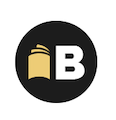Basic Bookkeeping Help
How To Be Your Own Bookkeeper
Quick Links
If you are a small business owner working from a home office in Canada or the U.S. ...
and you want basic bookkeeping help so you can start doing your own books ...
then I suggest you use this site as your "go-to" resource to assist you when you encounter a bookkeeping problem.
There is a lot of information on this site. New pages are added
regularly. The Site Map link at the bottom of the page explains how this
site is laid out ...
but here's what I suggest you do to get started on learning the bookkeeping basics (follow each link):
- Get informed on your record keeping requirements required by law.
- Organize your source documents. If you are going to be operating part of your business from your vehicle, consider this portable file organization system. You may want to consider setting up a paperless filing system.
- Study a flowchart of the accounting process, like the flowchart QuickBooks has, so you understand the "big picture". It will help you make better decisions on how to book something. Better decisions means reduced need for basic bookkeeping help.
- Learn how internals controls need to be an integral part of your accounting system and bookkeeping procedures.
- Consider using Undeposited Funds as part of your internal controls by using it as a clearing account for ALL monies received from customers.
- Consider using Accounts Payable as part of your internal controls by using it as a clearing account for ALL purchases and expenses regardless of payment source.
- Learn some basic accounting principles and good bookkeeping practices.
- Choose your bookkeeping system.
- If you choose QuickBooks to be your bookkeeping program, be sure to check out QuickBooks Tips for Common Bookkeeping Entries - Avoiding Beginner's Mistakes.
- Create your chart of accounts (COA) ... and become very familiar with it. It is the blueprint of your accounting system.
- Learn your debits and credits so you can post to accounts properly. My "cheat" table should help you in the beginning.
- Learn about special transactions to watch out for.
- Record and properly classify your transactions regularly.
- Prepare your government reports and remit amounts owing by the due date. (U.S. visitors click here instead.)
- Reconcile your bank and other accounts.
- Perform your month-end procedures.
- Learn about adjusting entries.
- Learn how to read your financial statements.
- Learn how to review your financial statements for accuracy so you can self-assess your work. You don't want to find out during an audit that your bookkeeping sucks!
- Learn about tax planning opportunities available to the self-employed. (U.S. visitors click here instead.)
Canada vs U.S.
Accrual vs Cash Basis
In the United States, for tax purposes, you can choose between cash
basis OR accrual basis accounting IF your business has five million
dollars or less in sales OR you carry inventory with under one million
in sales .
In Canada, you must use the accrual basis of
accounting for tax purposes. Only farmers and fishermen can use the cash
basis of accounting.
Accrual basis of accounting means you record the transaction when it happens. The cash basis of accounting records the transaction when the money exchanges hands.
The advantage of accrual accounting is you can keep track of who owes you money in your accounts receivable account and when it is due ... helping you manage your cash flow.
You can also track who you owe money to in your accounts payable account and when it is due ... allowing you to set your priorities for accounts payable to keep your credit rating intact.
If you decide not to do your own books because it's more work than you thought, check out my virtual services.
Basic Bookkeeping Help For The DIY Bookkeeper
Five Tips
1. Avoid using computer software that is not suited to your size of business or your skill level. This is one of the biggest mistakes DIY bookkeepers make.
You may be interested in reading A Yardstick to Evaluate Your Book Keeping System.
It helps you decide which bookkeeping system is best for your business by giving you system criteria (manual or computer) and questions to ask yourself. The article should assist you in determining whether you need hire basic bookkeeping help ... or if DIY is the best choice for you.
2. Don't fall behind on billing your customers ... and followup quickly when payments are overdue. I learned this lesson the hard way years ago.
Here is a short chat on invoicing and accounts receivable. Follow the links in the chat.
3. File all your tax compliance reports on time, even if you can't pay them. If you just don't have the time to get to them, that is an indication you need to hire basic bookkeeping help.
On my compliance pages, you will find all your due dates you must meet as a small business owner in Canada and in the United States.
4. Too many DIY bookkeepers pay too much tax because their records are not accurate enough to claim valid tax deductions.
You might want to bring yourself up-to-date on valid tax deductions in Canada and in the United States.
5. My last tip for you is to always do your bank reconciliation and credit card reconciliation EVERY (yup I said every!) month. You are running a business now making this step imperative.
Consider it part of your month end process. What!! You don't have a month-end process. GASP!!!!! Then using my bookkeeping checklists should at least help keep you on task.
Remember, if you decide not to do your own books because it's more work than you thought, check out my virtual services.
That's it! I hope you'll continue to use my site for your basic bookkeeping help.
